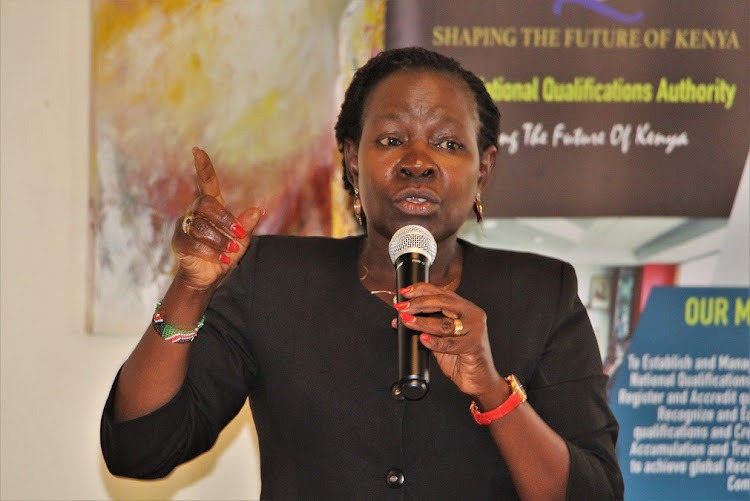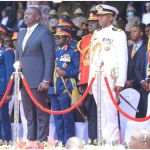The government has emphasised its commitment to reform skills development as a key enabler to the realization of the Bottom-up Economic Transformation Agenda (BETA).
Principal Secretary, State Department for Vocational and technical Training – Dr. Esther Thaara Muoria, in remarks, read on her behalf by Director Technical Education Mr. John Tuwei, in Naivasha during the Recognition of Prior Learning (RPL) stakeholders validation workshop, said the revised policy framework would play a pivotal role in this agenda.
“This clarity will play a crucial role in ensuring seamless implementation of RPL without any room for confusion. Our aim is to create a system where everyone’s skills and competencies are recognized and valued, regardless of their background or educational journey,” said Dr Muoria.
She went on: “ It is important to keep in mind that the success of RPL relies not solely on policies and guidelines but on raising awareness and promoting it widely. We must make a concerted effort to create awareness about RPL and its numerous benefits among all stakeholders, including learners, employers, training providers, and the general public. The more people comprehend the value of RPL, the wider its adoption will be.”
The legal instruments being validated are the Recognition of Prior Learning (RPL) Policy Framework in Kenya (Revised); guidelines for the implementation of RPL in Kenya; and differentiated Unit Cost (DUC) of Assessing Prior Learning.
The Ministry of Education, through the Kenya National Qualifications Authority (KNQA) together with other stakeholders has been spearheading the review process.
According to KNQA acting Director General Dr. Alice Kande, the move to review the policy is to align it with global and national agendas.
“We undertook the task of realigning the RPL policy framework as a rallying call to provide for the recognition of competencies including skills, knowledge, attitude and values. We understood that our policies should not exist in isolation but should seamlessly integrate with the broader vision of our government, aligning with the National Economic Agenda and the Bottom-UpTransformation Agenda—a vision that champions inclusivity, empowerment, and the enhancement of our nation’s human capital.,” said Dr Kande.
She said the validation of the revised draft of the RPL Policy Framework is not just a symbolic achievement; it is a testament to Kenya’s commitment to excellence and its unwavering dedication to the betterment of our society.
“This revised framework is not merely a document; it is a promise—a promise to our citizens that their skills and experiences matter, and that education is a lifelong journey that respects their unique pathways. It is a promise to our nation that we are aligning ourselves with the winds of change, embracing innovation, and fostering an environment where every citizen can earn a decent life and thrive,” said Dr Kande
KNQA Council Chairperson Mr Stanley Kiptis said the RPL policy framework will effectively serve the needs of Kenyans.
“ RPL policy framework is not just a set of guidelines; it is a promise to our learners, our workforce, and our nation. It is a promise of a brighter, more equitable, and prosperous future. Together, with your active participation and dedication, we can transform this promise into reality,” said Mr Kiptis.
The Presidential Working Party on Education Reform (PWPER), report which was released in August this year has recommended the implementation of the Recognition of Prior Learning (RPL) policy and Credit Accumulation and Transfer Systems (CATS) in Kenya.





